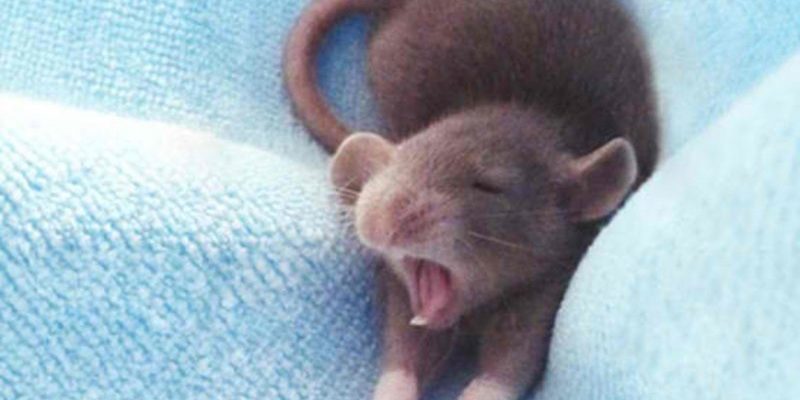
Imagine treating your furry friend like a cherished family member, paying attention to their needs, and spotting any signs of distress. The beauty of fancy mice is that they can live happy, healthy lives with a bit of care and knowledge. So, let’s dive into some of the common health issues fancy mice face and how you can keep them happily scampering around their habitats.
Respiratory Issues
Respiratory problems are one of the most common health concerns in fancy mice. Think about it—if their environment isn’t clean or their diet isn’t right, these little creatures can develop sneezing, wheezing, or labored breathing. This can be caused by a number of factors, such as dust in their bedding, drafts from open windows, or even secondhand smoke.
Here’s the thing: if you see your mouse having difficulty breathing or notice discharge from their nose, it’s time to act fast. A visit to the vet can help determine if it’s a simple allergy or something more serious, like a respiratory infection. To prevent these issues, keep their living space clean and well-ventilated. Use paper-based bedding instead of cedar or pine shavings, which can irritate their lungs.
Signs of Respiratory Problems
– Sneezing or coughing: If your mouse is sneezing more than usual, it could indicate a problem.
– Runny nose: A clear or colored discharge might mean they’re having trouble.
– Labored breathing: If you notice your mouse struggling to breathe, seek veterinary help immediately.
Dental Problems
Another common health issue that can arise in fancy mice is dental problems. Did you know that a mouse’s teeth never stop growing? That’s right! If they don’t wear down their teeth by chewing on appropriate items—like chew toys or crunchy treats—their teeth can become overgrown. This can lead to difficulties eating, which is both painful and potentially life-threatening.
You might be wondering how to ensure your mouse’s teeth stay healthy. Providing plenty of chew toys made from safe materials and a balanced diet that includes hard foods can help. Pay attention to what they eat; if your mouse is suddenly avoiding their food or seems to be eating less, it might be time to check their teeth.
Preventing Dental Issues
– Offer chew toys: Look for wooden toys specifically made for rodents.
– Check their diet: Include a mix of soft and harder foods.
– Regular vet checks: It’s wise to have their teeth inspected during check-ups.
Obesity and Weight Issues
Obesity is surprisingly common among fancy mice. Think of it like having a friend who can’t resist dessert. Mice can easily overindulge if given the chance, especially with treats. If not managed, obesity can lead to serious health concerns like diabetes or heart disease.
To keep your mouse in tip-top shape, it’s key to feed them a balanced diet and avoid excessive treats. A regular schedule of exercise is also vital. Create an engaging environment with tunnels, wheels, and plenty of space to explore.
Signs of Obesity
– Difficulty moving: If your mouse seems sluggish or has trouble climbing, they might be overweight.
– Fat deposits: Noticeable fat around the belly or back can be a warning sign.
– Change in behavior: If they’re less active or lethargic, it’s worth investigating.
Skin Issues
Skin problems can be a real pain in the tail for fancy mice. Things like mites, fungal infections, or even allergies can cause itching and discomfort. You might notice your mouse scratching or losing fur in patches, which is often a sign of a skin issue.
To help prevent these issues, keep their living area clean and provide a stress-free environment. If you suspect your mouse has a skin condition, a vet visit can guide you on the right treatment, which may include topical medications or changes in their diet.
Common Skin Problems
– Mites: Tiny pests that can cause intense itching.
– Fungal infections: Often linked to damp bedding or dirty cages.
– Allergic reactions: Changes in diet or new bedding can trigger allergies.
Gastrointestinal Problems
Fancy mice can also face gastrointestinal troubles, which can be caused by stress, sudden diet changes, or eating spoiled food. Symptoms to watch for include diarrhea, bloating, and a change in eating habits.
To keep their tummies happy, introduce any new foods slowly. A stable diet rich in fiber is essential for their digestive health. If you see any gastrointestinal issues, it’s best to consult your vet, as untreated problems can lead to severe health consequences.
Signs of Digestive Issues
– Diarrhea: Watery droppings can indicate a serious problem.
– Bloating: A visibly swollen belly can be a sign of distress.
– Loss of appetite: If your mouse isn’t eating, that’s usually a red flag.
Preventive Care and Regular Check-Ups
Just like humans, fancy mice benefit greatly from regular check-ups with a veterinarian. Routine visits can help catch problems early, allowing for efficient treatment and management. These check-ups can include dental inspections, weight assessments, and overall health evaluations.
You might also consider investing in a quality habitat complete with a wheel and climbing space. This can help stimulate them mentally while providing the exercise they need. Keep an eye on their behavior too; any changes can be a clue that something’s off, so don’t ignore it!
Final Thoughts
Caring for fancy mice can be a rewarding experience, but it does come with responsibilities. By staying informed about their common health issues and preventative measures, you can ensure your little companions lead happy, healthy lives. Remember, paying attention to their diet, environment, and behavior is key.
With just a little extra love and care, you can enjoy a rewarding relationship with your fancy mice that ultimately leads to a happy, thriving pet. After all, every mouse deserves to live their best life. Happy mousing!

